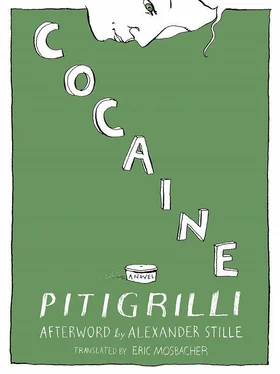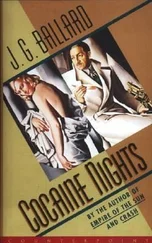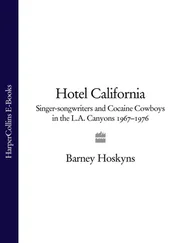The sound of the lift gate being shut clumsily awoke him.
He put his hand to his heart.
Heart, lungs, blood (he went on). I’m sick of knowing that my body’s a laboratory designed to nourish and renew my protoplasm. I’m nothing but phosphorus, nitrogen, hydrogen, oxygen and carbon. I’m sick of looking at myself, of looking down on myself as if I had eyes outside myself. And I’m sick of being in love, that is, of using up my phosphorus, nitrogen, hydrogen, oxygen and carbon.
Tito was haunted all night by these strange ideas. A church clock struck the hour, followed by a school clock and a station clock. Then a cock crowed, another replied, and a third intervened.
How cocks and clocks and nightingales and gramophone and violins repeated and imitated one another.
He turned and rolled between the sheets. He lay with his head at the foot of the bed and put one leg down on either side. He switched on the fan, looked at the time, switched off the fan, got up and dressed.
He rang twice, and a maid appeared. He rang four times and the porter came. He told the maid to pack his bags. Only his, not the lady’s. He told the porter to book him a passage on the first ship leaving for Europe.
“It’ll be rather difficult to get you a cabin today, sir,” the porter prudently suggested. “But I can telephone to Buenos Aires.”
“When all the cabins in a transatlantic liner are booked,” Tito said, “a grand hotel porter can always manage to find another one, and it’s always the best in the ship.”
Some hours later, at about midday, when Cocaine came in without knocking, she found an Englishwoman who had just arrived busily soaping the abundant fat of her oversized face.
In response to the startled lady’s protests Maud muttered an apology and summoned a waiter.
“The gentleman left the hotel half an hour ago.” he said.
Maud did not reply.
“But,” the waiter, who was a tremendous psychologist, went on, “as the ship doesn’t leave until this evening, I could get a car and bring him back in eight hours, if madam so desired.”
“Bring me some bread and butter,” Maud replied.
The waiter was on his way out when Maud called him back.
“And honey,” she said.
The sea was calm.
Even before they left the estuary he met a distinguished Hungarian polyglot scientist who spat when he spoke just as grasshoppers, irritated grubs and female concierges do to defend themselves. The man was engaged in some very important research into the psychology of women of various nationalities in relation to the weight of their organs.
He had discovered that German women’s hearts weighed a kilogram, that their brain weighed 825 grams, and that their height was 1.7 meters. The figures for Austrian women were heart 950; brain 850; length of hair 65 centimeters. North American women, spleen… etc.
Tito also made the acquaintance of a Spanish woman from Granada who walked into his cabin by mistake.
The mistake cost him two hundred pesos; the lady insisted on payment in advance.
“What gall these Spanish women have,” Tito remarked to the Hungarian scientist.
“About a kilogram,” the savant replied.
Like a king in fairy stories, he had two daughters who were very much alike; there could be no doubt that they were daughters of the same mother. One was plump, pink-cheeked and florid, and the other was smaller and more delicately made. But they were both of the same type, like an orange and a tangerine.
Tito peeled both of them.
He did the usual things one does on a voyage, like guessing the height of the ship, questioning the officers about longitude and latitude and the ship’s telegraph and compass, watching the clouds being ruffled by the wind, adjusting one’s watch to the ship’s time, exchanging remedies for sea-sickness, sitting on a blanket on a long rush seat and letting one’s face be tickled by the perfumed wind, pestering the wireless operator with silly questions, listening to stories of shipwrecks that never happened, and having complicated cocktails made by the barman. When they called at a Brazilian port he looked for butterflies like those let loose in the penguin room at the villa in the Champs Elysées belonging to Kalantan, the beautiful Armenian lady, and when they crossed the line he took part in the usual celebrations and put a cork in his pocket as a souvenir. On the coast of Senegal he disembarked for a few hours to have a look at the native open air brothels.
During the first few days of the crossing he bought a monkey from a Chilean dealer who displayed in the stern his loquacious stock of polyglot parrots, masturbating monkeys, caged birds and goldfinches with fancy waistcoats. Towards the end of the voyage he gave the monkey back as a present. The Chilean dealer accepted it as a favor. Everyone who buys a monkey early in a voyage gives it back before disembarking, and some monkeys are said to have crossed the Atlantic ten times in this way.
A Dutch young lady, the daughter of a big jam manufacturer who had travelled a great deal, told him that at Port Said she had seen an Egyptian woman being subjected to what moralists call the extreme outrage — by a donkey.
“It’s certainly donkeys that are most successful with women,” Tito remarked.
“But this wasn’t a metaphorical donkey, it was a donkey with four legs,” the daughter of the Dutch jam manufacturer pointed out.
“And where did this take place? In a field?”
“No, at a stall at a fair. You paid a pound sterling to watch.”
“And who got the money?” Tito asked.
“The woman.”
“I’d have given it to the donkey.”
He was introduced to some respectable ladies with whom he engaged in the polite conversation that follows an introduction.
“But how is it, my dear lady, that you already have a son as big as that?”
“Oh, I was still a child when I got married.”
The Dutch young lady also received him by mistake in her cabin, and did not put many difficulties in the way of his crossing the line. She was such an experienced traveler that she was able to whistle in bed, which gave Tito the embarrassing feeling that he was in bed with a man, though she was all warm, smooth and glossy, just like an electric lamp.
The respectable lady who already had a boy as big as that also joined the ranks of his ex-lovers.
He had a splendid appetite, though the pain of having left Maud gave him a vague feeling of uneasiness. Some people don’t eat when they are unhappy. They feel moral pain in their intestines. When Tito had love trouble his appetite was excellent.
He often went down to the deafening din of the engine room to watch the naked, bronzed, athletic stokers, those marvelous men who make virgins’ mouths water.
He also met a lady who, knowing him to be a journalist and therefore something very close to literature, asked him to suggest a motto to be inscribed on the buckle of her garters.
Women don’t keep you hanging about on board ship. Perhaps they may do so on voyages of forty days or two months, but on a fortnight’s crossing, never.
He recalled his gloomy days in Paris, his lonely wanderings past the abattoirs to the cemetery of Père Lachaise, when his depressed senses enabled him to think without suffering about Maud walking around naked in someone else’s house. But now he was full of eager virility. It was the excitement of the sea. The odor of the infinite is an insidious aphrodisiac.
He was sitting in the smoking room one evening facing a lady whose legs were enclosed in pearly-gray silk stockings. They gleamed like fish just out of the water.
“What are you doing?” she asked.
“I’m praying,” Tito replied.
Читать дальше



